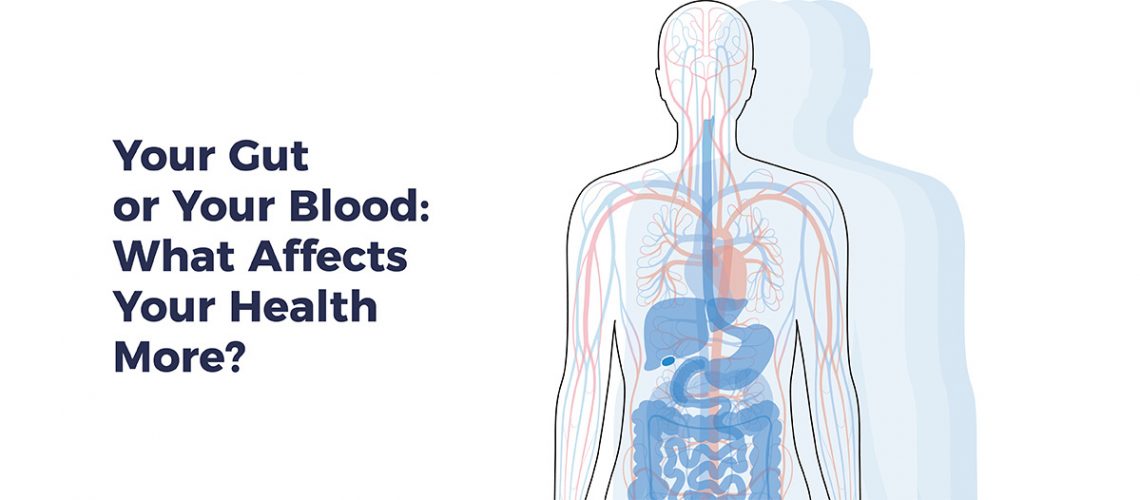Digest This
Click on the topics below to learn how probiotics can improve your digestive health, naturally.

Your Gut or Your Blood: What Affects Your Health More?
- @drHoberman
- Diet
Your Gut or Your Blood: What Affects Your Health More?
We posted an article last year that asked a provocative question about what affects your health more: Your gut or your genes.
From that report, we learned once again how the quality of our daily diets shaped the diversity of our microbiomes in ways that can leave us more vulnerable to serious health problems or protect us from them.
That’s not all, according to a pair of recent studies conducted in Sweden and America.
The human gut exerts its influence through diet and even the medications you take on the composition of metabolites that drive countless functions throughout your body’s bloodstream.
But how much does your gut really affect your health? Much more than you would ever assume…
The Connection Between Your Gut and Your Blood
Two recent studies conducted in Sweden and America came to strikingly similar conclusions. In both cases, gut microbiomes drove variances in blood metabolites.
After examining the presence of 930 blood metabolites in more than 1,500 patients, researchers from the Institute of Systems Biology (ISB) in Seattle concluded more than 60 percent of those metabolites were tied directly to the gut microbiome, a patient’s genetic makeup or both.
Of that number, 69 percent of those connections were driven solely by the microbiome and an additional 16 percent were controlled by a genetic-microbiome hybrid. Only 15 percent of the metabolites tracked were associated with a patient’s genetic makeup.
Swedish researchers from Lund University and Uppsala University came to similar conclusions, estimating as much as 58 percent of the variances of individual blood metabolites are linked to the microbiome.
Moreover, this team documented more than 546,000 associations between specific gut species and blood metabolites.
The Main Takeaway
So, in simple terms, what does this knowledge really mean for our understanding of the gut microbiome and your own health?
For one, understanding the variances between the composition of bacteria in the gut and metabolites in the blood can help scientists find more targeted approaches to health problems, says Dr. Sean Gibbons, an ISB faculty member and study co-author.
Also, these findings suggest that our gut health drives a majority of the metabolites in our blood, and that they can be treated and enhanced by basic lifestyle interventions.
For example, eating a diet rich in dietary fiber can make a huge difference. Just adding one ounce of fiber is all it takes, and it’s doable if you enjoy nutrient-dense foods like lentils, green beans, oats and mushrooms.
Researchers also suggested taking a probiotic could provide a healthy boost to your metabolites.
To the end, be sure that any probiotic you take is formulated with multiple strains of beneficial bacteria from the Bifidobacterium and Lactobacillus families as well as a prebiotic (that feeds the good bacteria in your gut) like EndoMune Advanced Probiotic.
Resources
There Is An Endomune Probiotic For Every Lifestyle
-
EndoMune Metabolic Rescue
$44.95 -
EndoMune Advanced Probiotic
$42.95 -
EndoMune Companion Pack
$112.93









